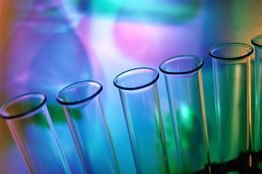
Australia-based Prana's phase II clinical trial investigating PBT2 as a treatment for Huntington disease shows positive results
Singapore: Australia-based Prana Biotechnology has achieved positive result in its phase II clinical trial investigating PBT2 as a treatment for Huntington disease. The double-blind, placebo-controlled study was conducted by the Huntington Study Group at research sites in the US and Australia.
The study enrolled 109 individuals with Huntington disease, who were randomly assigned to receive daily doses of either PBT2 250mg, PBT2 100mg, or placebo for 26 weeks.
Dr Rudy Tanzi, professor, neurology, Harvard Medical School, and Prana's chief scientific advisor, commented that, "The observation of significant improvement in executive function with PBT2 in this clinical trial for Huntington disease and the previously reported Alzheimer's trial, suggests a common mechanism for neurodegeneration in these diseases based on metal interactions. In my opinion, these findings significantly elevate the potential for PBT2 as an effective therapy for both Huntington disease and Alzheimer's disease."
Dr Ira Shoulson, professor, neurology, Georgetown University and chair of the Huntington Study Group, who was not involved in the trial and acts as an advisor to Prana, added, "In the Reach2HD trial, the improvement in executive function performance was also accompanied by a favourable signal of a slowing of functional decline, as measured by the Total Functional Capacity score. This is the first time we have observed dose-related slowing in functional decline over a six month period of treatment, which taken together with the safety reassurance, will provide genuine optimism for the Huntington disease community to support a larger confirmatory trial of PBT2 in Huntington disease."
Dr Diana Rosas, associate professor, neurology, Harvard Medical School, and the study's co-principal investigator who conducted the imaging sub-study commented, "Despite the very small number of patients in the sub-study, the data are suggestive of a beneficial effect of PBT2 in regions of the brain that are known to be vulnerable to Huntington disease."
Dr Ray Dorsey, professor, neurology, University of Rochester, and principal investigator on the trial added, "We are very pleased that the results of the Reach2HD study have shown that PBT2 is well tolerated and generally safe over six months in individuals with early to mid-stage Huntington disease."
"In addition, the results indicated a significant benefit on cognition that is consistent with the previous trial in Alzheimer's disease and is accompanied by an encouraging finding in functional capacity. We are very thankful for the involvement of the research participants and investigators in this study and look forward to future trials of this promising therapy for one of the cardinal features of Huntington disease."
Prana plans to advance PBT2 into a confirmatory phase III clinical trial that could allow PBT2 to be approved for the treatment of Huntington disease.




